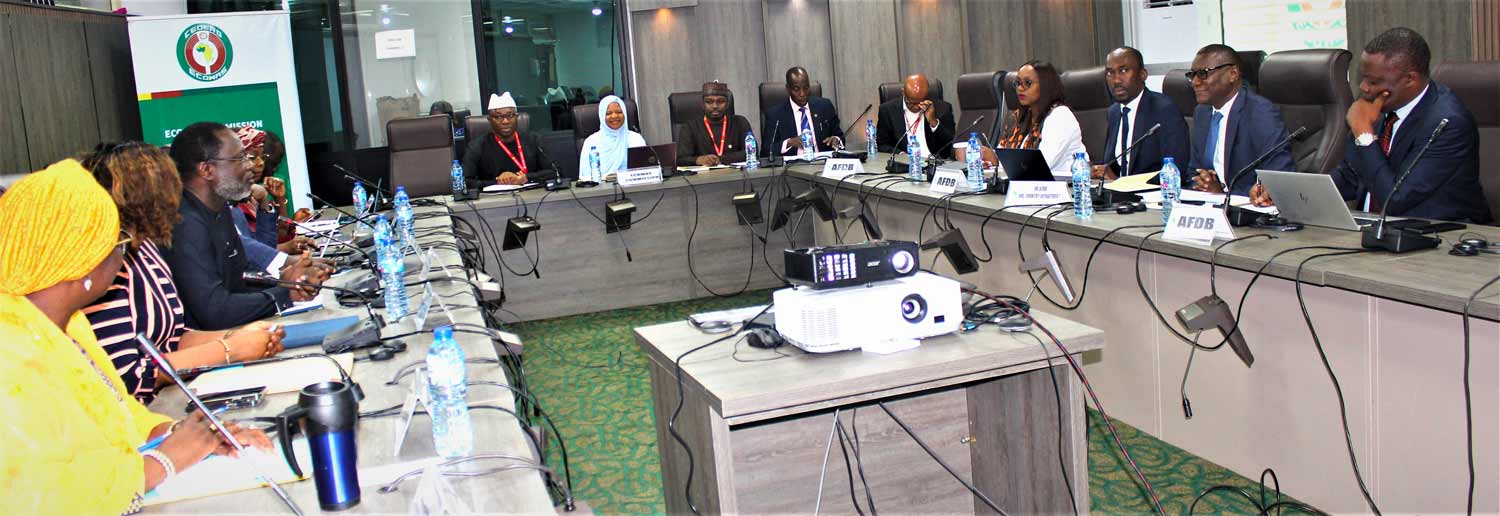In a concerted effort to bolster regional integration and enhance economic cooperation in West Africa, the Economic Community of West African States (ECOWAS) and the African Development Bank Group recently concluded a series of consultations for the mid-term assessment of the West Africa Regional Integration Strategy Paper (RISP) 2020-2025.
The African Development Bank Group endorsed the West Africa RISP 2020-2025 in May 2020, signifying its commitment to supporting regional integration initiatives across West Africa. Boasting an initial indicative investment plan amounting to $4.52 billion, the West African RISP is primarily focused on fortifying resilient infrastructure and propelling the development of regional businesses.
The consultation sessions, held from September 5 to 15, 2023, unfolded at the headquarters of the ECOWAS Commission in Abuja, Nigeria. During this period, both parties engaged in an extensive appraisal of the midterm outcomes and conducted a comprehensive performance evaluation of the Bank’s regional portfolio.
Read also: AfDB, South Korea to boost food security, vaccine production
Navigating West African Integration Challenges
The evaluation process honed in on pivotal issues central to West African integration, including challenges, opportunities, and prospects. It also examined the strategic direction of the Bank and the priority intervention areas, shared projects between the two institutions, and the status of their collaboration. These deliberations culminated in a consensus on the trajectory, orientation, and domains warranting intervention within the ambit of the Bank’s upcoming priority projects.
Moreover, the consultations addressed a wide array of critical subjects encompassing economic affairs and agriculture, human development and social affairs, infrastructure, energy, digitalization, political considerations, peace and security, transportation, and information and communication technologies.
Strengthening Partnerships for Progress
Mr. Lamin G. Barrow, Director General of the Nigeria Country Department, who led the Bank’s delegation, underscored the deepening partnership between the ECOWAS Commission, the Bank, and regional institutions during the midterm assessment. Mr. Barrow emphasised the need for a comprehensive review after three years of implementing the regional strategy, especially in a context characterised by a series of challenges spanning health, security, socio-political developments, climate change, environmental concerns, food insecurity risks, and a surge of unconstitutional power changes. He further highlighted the urgency of drawing lessons from past experiences and proposing immediate corrective measures for implementation between 2024 and 2025.
The Momentous Path Ahead
President of the ECOWAS Commission, Mr. Omar Alieu Touray, stressed the vital nature of cooperation with the African Development Bank in the implementation of the RISP. He emphasised the imperative of consolidating progress and realigning activities and institutions to yield tangible outcomes. Mr. Touray acknowledged the colossal challenges that lay ahead and the need for a concerted effort to surmount them.
During the mission, the Bank Group delegation delved into the Bank Group’s Strategy for Addressing Fragility and Building Resilience in Africa (2022-2026) and presented an overview of the “Security-indexed Investment Bonds.” Notably, the evaluations of the studies for the Abidjan-Lagos highway project laid the foundation for the construction commencement in early 2024. This transformative project entails a 1028-kilometre highway linking Côte d’Ivoire, Ghana, Togo, Benin, and Nigeria.
A Strong Commitment to Integration and Development
Under the umbrella of its Regional Integration Strategy Paper, the African Development Bank has successfully mobilised $884.14 million since 2020, encompassing 70 new operations, nearly doubling the initially planned 38 projects. Among these projects, noteworthy initiatives include the Rosso Bridge between Senegal and Mauritania, the Trans-Gambia Corridor with the bridge over the Gambia River between Senegal and Gambia, the Niger-Algeria Trans-African Highway Project, phase 2 of the Lomé-Cotonou Highway Refurbishment Project, and the Mano River Transport Development and Facilitation Project, among others.
Principal Regional Integration Coordinator for West Central and West Africa, Youssouf Kone, and Ometere Omoluabi Davies, Principal Regional Integration Coordinator for the Nigeria Country Department, provided an overview of the implementation status of various projects. They also shared valuable insights into lessons learned and recommendations. The discussions spanned a wide spectrum of topics, including innovation in co-financing methods and resource mobilisation, the refinement of responses to fragility, and the fortification of public resilience.
A Vision of Resilience and Peace
In her concluding remarks, Ms. Marie-Laure Akin-Olugbadé, the Bank’s Vice-President in charge of Regional Development, Integration, and Service Delivery, reaffirmed the Bank Group’s unwavering commitment to providing decisive support to Member States and the ECOWAS Commission under the High-5 priority of “Integrate Africa.” She called for the Bank’s interventions to extend to the most vulnerable segments of the population, especially young people and women. The aim is to offer them economic opportunities while reinforcing institutional governance, bolstering public resilience, and addressing the root causes and consequences of regional instability. Ms. Akin-Olugbadé emphasised that “without stability and peace, there can be no development and no regional integration.”
As the deliberations draw to a close, the mutual commitment to fostering regional integration and driving development in West Africa shines brightly. The collaborative efforts of ECOWAS and the African Development Bank Group are poised to yield far-reaching benefits for the region, with a focus on resilience, prosperity, and enduring peace.
